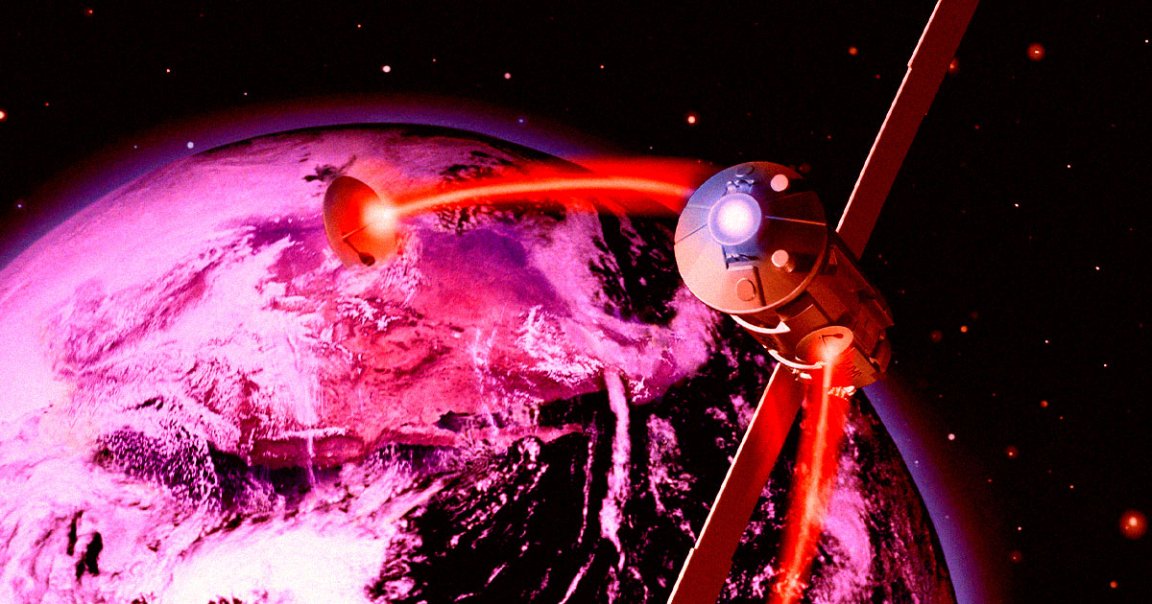
Space Weapons Now
Space Force major general David Miller is worried the US could fall behind China and Russia in the space race — and is calling for action instead of waffling about pesky questions like, say, the ethics of space weapons.
If it were up to Miller, as Breaking Defense reports, the US government would’ve begun building weapons capable of deterring the country’s adversaries in our planet’s orbit years ago.
“We’ve got to… stop debating if it’s a warfighting domain, stop debating whether there are weapons, and get to the point of how do we responsibly, as part of the joint and combined force, deter conflict that nobody wants to see, but if we do see it, demonstrate our ability to win?” Miller said during an online event put on by the aerospace power-focused think tank Mitchell Institute, as quoted by Breaking Defense.
As a result, the US has to find new ways of “providing capability to find, fix and deny any adversary capability to find and target US forces or allied forces,” he added.
It’s a surprisingly forceful declaration, especially considering that the Space Force historically has struggled to justify its own existence, let alone be taken seriously.
Sending a Message
Yet its leaders are clearly eager to start building out an arsenal capable of confronting both Russia and China, countries that have made significant strides when it comes to warfare in space, from satellite-based surveillance to anti-satellite weapons.
In a new Mitchell Institute policy paper, Charles Galbreath, a senior fellow at Mitchell and a retired Space Force colonel, argued that diplomacy isn’t enough to deter China and Russia, and that the US must find ways to counter China’s expanding military space capabilities in particular.
Therefore, Galbreath wrote, the US must adjust its military policies to “direct the development” of counterspace capabilities and “send a clear message to potential adversaries that the United States is serious about defending its interests in space.”
These weapons must also be able to defend the country without creating “long-lived debris in space” — which makes sense, considering we’re still dealing with the fallout of Russia’s anti-satellite test missile test in 2021, which resulted in over a thousand trackable pieces of space junk.
But whether the Space Force will be able to act on these recommendations remains to be seen. At this week’s event, Miller argued that while the military branch has made “significant progress,” it still hasn’t “fielded a globally capable, precision-quality, custody focused space domain awareness enterprise,” he said.
And that doesn’t exactly bode well, considering that in many ways, that’s a big part of its core responsibilities.
More on Space Force: Top Space Force General Confused About Why Space Force Exists